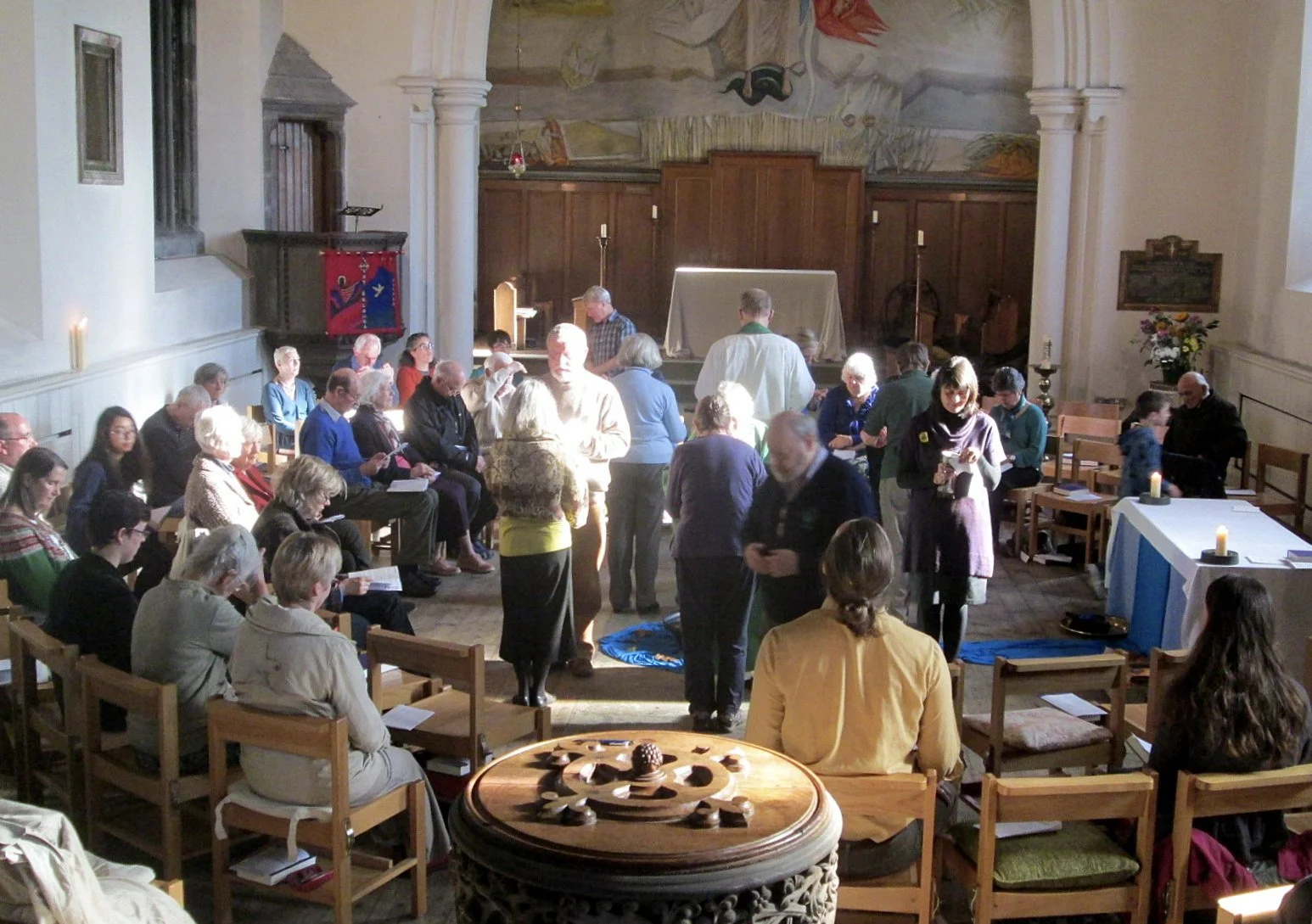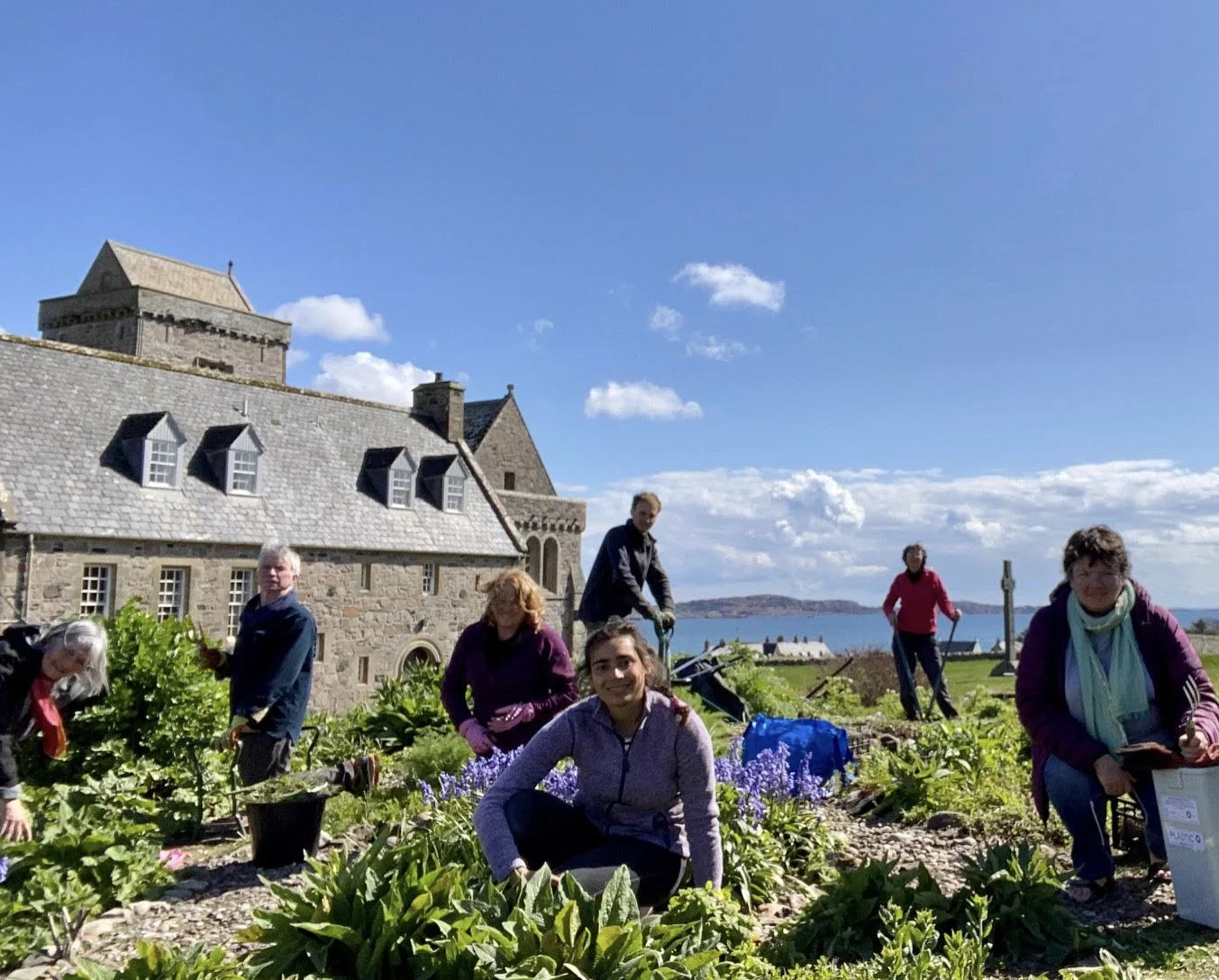Community in Our Day
Close-knit communities have many benefits but they can also be intrusive and controlling, or hostile to those who are seen as outsiders. Many have been glad to get away to the anonymity of the city where they feel freer to be themselves. However, that same freedom can also bring a feeling of being dislocated and isolated. The insight from the Hebrew Bible that “it is not good for man [ie humans] to be alone” remains valid. We are social animals and as the Bantu say: “Ubuntu – I am because we are.”
Finding community at the heart of Edinburgh Photo: courtesy of Grassmarket Community Project
There is still a strong desire in most of us to belong and share in something bigger than ourselves. Modern life offers many kinds of groups – schools, work places, gyms, sports clubs, and so on. Online communities have become increasingly common and important for some people, especially since the Covid pandemic. Some of these in-person or online groups are self-selecting, or focussed around a shared interest, point of view or age-group. Some can involve fairly transient relationships, with the freedom to opt in or out at will. So in many ways “community” looks different today than it did in the past.
Faith communities have sometimes shared some of the less attractive features of community, however at their best they are places of remarkable richness, diversity and support. From a Christian point of view, that openness – expressed both in hospitality and wider engagement – is found in all healthy communities. For the congregation at St Columba's, a radical, inclusive hospitality is a deeply held value. We sense God's hospitality towards us as we share together in the Eucharist and we seek to express this in our relationships with others – be they friends or strangers.
Members of St Columba's at worship Photo: Cat Outram
Whatever our beliefs may be, community remains vital to human flourishing. “Twenty minute neighbourhoods”, is a recent idea in urban and rural development, based on this conviction. It envisages a society where all the essentials for life would be available within a twenty minute walk from home. While that may seem a long way off, it reminds us that in the context of the climate crisis, strong yet open communities are sustainable communities.
Members of the modern Iona Community in the Abbey garden. Photo: courtesy of Iona Community / Catriona Robertson
Here are some thoughts on what Community means to us at St Columba's
Exploring Further
You will have your own ideas - here are some of our recommendations
EXTERNAL LINKS
Iona Community - An international, ecumenical Christian movement working for justice and peace, rebuilding community and the renewal of worship.
Grassmarket Community Project - An inclusive community, in the heart of Edinburgh, where individuals can, through membership and volunteering, contribute to the wellbeing of those facing social exclusion.
The 20-minute Neigbourhood - Ideas and resources, including videos, delving deeper into this approach to community life.
The Scottish Episcopal Church - If you would like to explore community through a local church community in Scotland.
FILM & TV
Into Great Silence - (2005) An intimate portrayal of the lives of monks in a silent monastery, with no added commentary.
The Hermit of Treig - (2022) A BBC Scotland documentary about a man who, after 40 years of solitude, deals with questions about whether he can live out his last years in the wilderness he calls home.
BOOKS
Soil and Soul: People versus Corporate Power by Alistair MacKintosh (2001) A writer and campaigner tells of individuals and communities taking on the might of corporate power and emerging victorious.
The Love Song of Miss Queenie Hennessey by Rachel Joyce (2014) A gently moving story of a woman finding healing within a hospice community.



